Related Research Articles
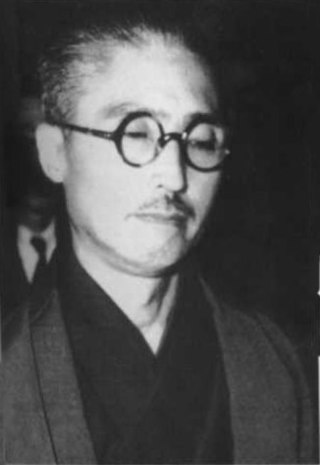
Sadamichi Hirasawa was a Japanese tempera painter. He was convicted of mass poisoning and sentenced to death. Due to strong suspicions that he was innocent, no justice minister ever signed his death warrant.

The Kudo-kai is a yakuza group headquartered in Kitakyushu, Fukuoka on the Kyushu island of Japan, with an estimated 220 active members. The Kudo-kai has been a purely independent syndicate ever since its foundation, and has caused numerous conflicts with the Yamaguchi-gumi.
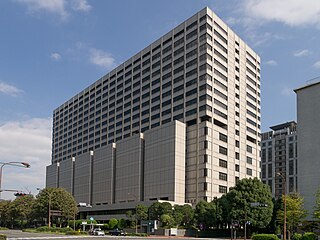
In the judicial system of Japan, the Constitution of Japan guarantees that "all judges shall be independent in the exercise of their conscience and shall be bound only by this constitution and the Laws". They cannot be removed from the bench "unless judicially declared mentally or physically incompetent to perform official duties", and they cannot be disciplined by executive agencies. Supreme Court judges, however, may be removed by a majority of voters in a referendum that occurs at the first general election following the judge's appointment and every ten years thereafter. The judiciary was far more constrained under the Meiji Constitution than it is under the present Constitution and had no authority over administrative or constitutional law cases. Moreover, the Ministry of Justice had complete and direct control over the courts' administrative affairs. Nonetheless, Professor John Haley argues that the courts maintained complete independence in the adjudication of particular cases. "Judicial independence from the political branches was emphatically established as a fundamental principle of governance in Article 57 of the Meiji Constitution. Of all branches of government only the courts exercised authority 'in the name of the Emperor'." Haley argues that this was and remains a matter of great pride for Japanese judges and notes that "placed prominently in all courtrooms was the inscription 'in the name of the Emperor' as a meaningful reminder to imperial officials and subjects alike that the Emperor's judges were not subject to political control or direction."
Sweden v. Yamaguchi, otherwise known as in the matter of Marianne Wilson, or in the matter of Mary Ann Vaughn, is a highly complex decision in international family law which touches on questions in law still unresolved over fifty years later. The formal name of the action was Israel Karl-Gustav Eugene Lagerfelt v. Yamaguchi Masakatsu and Yamaguchi Hideko, or Case of Demand for Delivery of an Infant, No. Wa-154, 1956 Yokohama District Court, initiated February 22, 1956. On December 5, 1956, it held that the defendants should deliver the infant to the plaintiff. The appeal was dismissed by Tokyo High Court on July 9, 1958.

Denny Chin is a senior United States circuit judge of the United States Court of Appeals for the Second Circuit, based in New York City. He was a United States District Judge of the United States District Court for the Southern District of New York before joining the federal appeals bench. President Bill Clinton nominated Chin to the district court on March 24, 1994, and Chin was confirmed August 9 of that same year. On October 6, 2009, President Barack Obama nominated Chin to the Second Circuit. He was confirmed on April 22, 2010, by the United States Senate, filling the vacancy created by Judge Robert D. Sack who assumed senior status. Chin was the first Asian American appointed as a United States District Judge outside of the Ninth Circuit.
Iccho Itoh was a Japanese politician who served as the mayor of Nagasaki from 1995 to 2007.
Super Free or its shortened form Sūfuri (スーフリ) was an inter-university rave event club, mainly comprising students of Waseda University in Tokyo, Japan. The leader of the club along with various students from Waseda and other universities in Tokyo were arrested and convicted for rape and, subsequently, the club was dubbed by several English media outlets as a "rape club". Its leader was Shin'ichirō Wada. Members of the group were convicted of raping three women, but the real number of victims is unknown. Since their arrests, and the club's dissolution, twelve other women have been identified as victims. The club was also incorporated as Super Free Yūgen gaisha (Limited) (有限会社スーパーフリー).
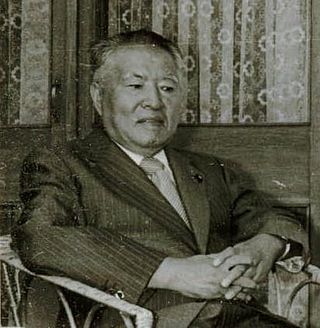
Kenji Miyamoto was a Japanese communist politician. He was the leader of the Japanese Communist Party (JCP) from 1958 to 1977.

Shigemitsu Dandō was a professor of the department of Social and Political sciences at the University of Tokyo, an academic researcher of criminology, and a Justice of the Supreme Court of Japan.

Hiroko Nagata, sometimes mistakenly referred to as Yōko Nagata, was a Japanese leftist revolutionary and terrorist who was convicted of murder and sentenced to death. She was convicted of murdering, or participating in the murders of, fellow members of the United Red Army (URA) during a group purge in Gunma Prefecture in February 1972.
Tokiyasu Fujita is a Japanese jurist, former judge of the Supreme Court of Japan, Professor Emeritus of Tohoku University, member of the Japan Academy, and member of the Imperial Household Council. His specialty is administrative law. He was actively involved in the public debate surrounding the legal transformation of Japanese National Universities into corporations in 2004.

Kōtarō Tanaka was a Japanese jurist, professor of law and politician who served as the last Minister of Education of the Empire of Japan and the second postwar Chief Justice of Japan.
The Yamaguchi arson and murders took place on July 21 and 22, 2013 in the hamlet of Mitake, in Shūnan, in Yamaguchi Prefecture, Japan, and resulted in the deaths of five people. These murders prompted a manhunt for a 63-year-old man who had disappeared from the town after the killings, leaving two cars and his dog behind. The suspect's house had a haiku poem posted in the window reading "Setting a fire—smoke gives delight—to a country fellow".

The Sagamihara stabbings were committed on 26 July 2016 in Midori Ward, Sagamihara, Kanagawa, Japan. Nineteen people were killed and twenty-six others were injured, thirteen severely, at a care home for disabled people. The crimes were committed by a 26-year-old man, identified as Satoshi Uematsu, a former employee of the care facility. Uematsu surrendered at a nearby police station with a bag of knives and was subsequently arrested. Justin McCurry of The Guardian described the attack as one of the worst crimes committed on Japanese soil in modern history. Uematsu was sentenced to death on 16 March 2020, after the prosecution sought the maximum penalty for murder in his trial; as of July 2022, he was on death row awaiting execution. As of 2023, it is currently the deadliest mass stabbing in Japanese history.
Shiori Itō is a Japanese journalist and filmmaker. Her work focuses on gender equality and human rights issues. Itō's activism led to her inclusion in the Time 100 Most Influential People of 2020.
Dana Lynn Kuehn is an American attorney and judge from Tulsa, Oklahoma who has served on the Supreme Court of Oklahoma since 2021; she was appointed by Governor Kevin Stitt on July 26, 2021. Kuehn had previously been a Oklahoma Court of Criminal Appeals Judge after her appointment by the Governor of Oklahoma Mary Fallin on October 2, 2017. Kuehn is the first woman to serve on both of the state's high courts, the Oklahoma Supreme Court and the Oklahoma Court of Criminal Appeals.
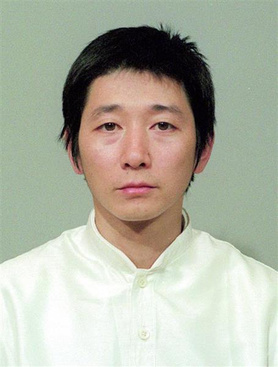
Kazuaki Okazaki was a Japanese convicted multiple murderer and former member of the doomsday cult Aum Shinrikyo who co-perpetrated the Sakamoto family murder and another murder in 1989. Immediately after the Sakamoto murders, he abandoned the cult and turned himself in to the police after the Tokyo subway sarin attack in 1995. He was tried and was sentenced to death for those crimes, for which he pleaded clemency. The petition was repeatedly dismissed by the courts and he was executed in July 2018.
Noriyuki Yamaguchi is a former Japanese journalist and biographer of former Japanese Prime Minister Shinzo Abe. He is accused of raping Shiori Itō, who was an intern at Thomson Reuters. His denials and the police refusing to press rape charges against Yamaguchi sparked the Me too movement in Japan.
Hiroyuki Kanno is a Japanese jurist who served as an associate Justice of the Supreme Court of Japan from 2016 to 2022.
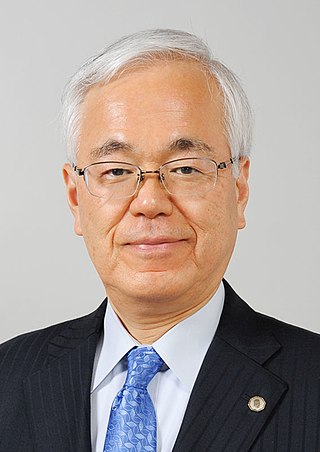
Saburo Tokura is a Japanese jurist who has served as the Chief Justice of Japan since June 2022, having previously served as an Associate Justice on the Supreme Court of Japan from 2017 to 2022.
References
- 1 2 3 4 "YAMAGUCHI Atsushi | 裁判所 - Courts in Japan". www.courts.go.jp. Retrieved 2021-06-02.
- ↑ NEWS, KYODO. "Death sentence finalized for man who killed 5 neighbors in 2013". Kyodo News+. Retrieved 2021-07-02.
- ↑ NEWS, KYODO. "Japan top court rules against denying benefits to fixed-term workers". Kyodo News+. Retrieved 2021-07-02.
- ↑ "Supreme Court of Japan | Japanese government". Encyclopedia Britannica. Retrieved 2021-06-02.